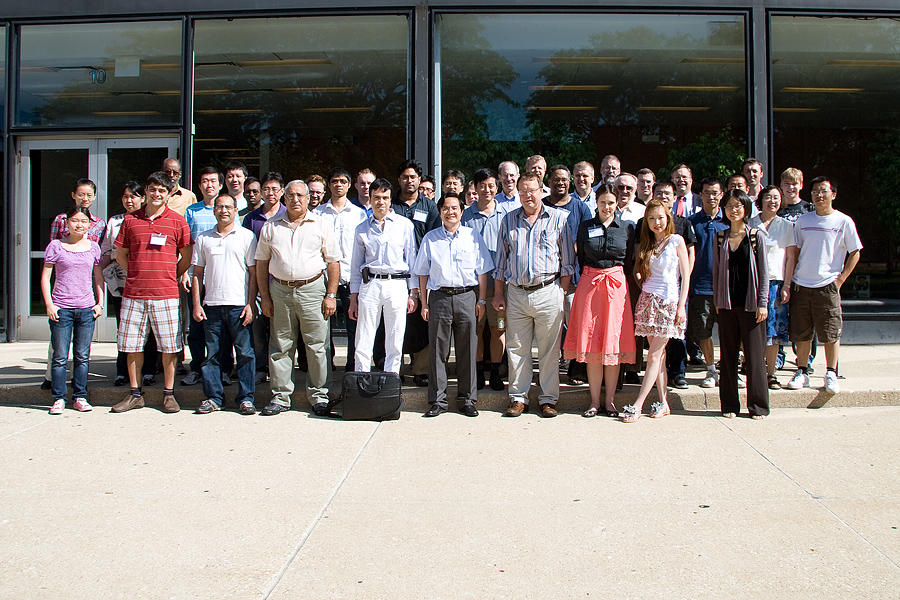About the Conference
NSF/CBMS Regional Conference in the Mathematical Sciences (Supported by NSF)
August 9-13, 2010, Chicago, IL, USA

Photo in Large Print Format, 12'x8' at 300 dpi
Principal Lecturer:
Peter E. Kloeden,
University of Frankfurt, Germany
Invited Speakers:
Hassian Allouba (Kent State University, USA)
Qiang Du ( Penn State University, USA)
Arnulf Jentzen (Bielefeld University, Germany)
Yannis Kevrekidis (Princeton University, USA)
Salah Mohemmed (Southern Illinois University, USA)
Klaus Ritter (Darmstadt University, Germany)
Anthony Roberts (Adelaide University, Australia)
Panagiotis Souganidis (University of Chicago, USA)
Richard Sowers (University of Illinois at Urbana-Champaign, USA)
Organizers:
Jinqiao Duan, Igor Cialenco, and Fred J. Hickernell
Department of Applied Mathematics
Illinois Institute of Technology
10 W 32nd Street, Room 208
Chicago, IL, 60616, USA
http://www.iit.edu/csl/am/
Conference Themes
The numerical solution of stochastic partial differential equations (SPDEs) is at a stage of development similar to that of stochastic ordinary differential equations (SODEs) in the 1970s. Past developments have been ad hoc and fragmentary and it was not known how to derive higher order schemes. The breakthrough for SODEs came via stochastic Taylor expansions which are based on iterated applications of the Ito formula, the stochastic chain rule. This theory was expounded in the influential monograph of Kloeden & Platen which first appeared in 1992. Unfortunately there is no general Ito formula for SPDEs. Moreover, many additional difficulties arise with SPDEs, in particular the infinite dimensionality of the driving noise processes. Very recently, Jentzen & Kloeden have shown how stochastic Taylor expansions for the solution for SPDEs have been established on the basis of the integral representation of mild solutions of SPDEs and new higher order numerical schemes for SPDEs are now being derived.
For both SODEs and SPDEs above, strongly and weakly convergent Taylor approximations and numerical schemes have been derived, but under the severe restriction that the partial derivatives of the coefficient functions that appear are uniformly bounded. This excludes many important nonlinear models including those in mathematical finance which involve square root coefficients and have the added problem that the numerical solution must remain positive. Again, very recent progress by Jentzen, Kloeden and Neuenkirch has shown how these difficulties can be overcome if one uses pathwise convergence instead of strong or weak convergence. Pathwise convergence has many other advantages, in investigating dynamical properties.
Moreover, random ordinary and partial differential equations (RODEs, RPDEs), which are pathwise deterministic equations analyzable by deterministic calculus, are obtainable from SODEs and SPDEs via Doss-Sussman like transformations. Pathwise higher order numerical schemes for RODEs derived recently by Jentzen & Kloeden can also be used to obtain numerical solutions of SODEs and SPDEs.
The proposed lecture series aims to crystalize the foundational developments in the field of numerical SPDEs and set the stage for an explosion of new results that will bring the field to maturity in the coming decade. The above issues are closely related and will all be handled in the lectures.
|